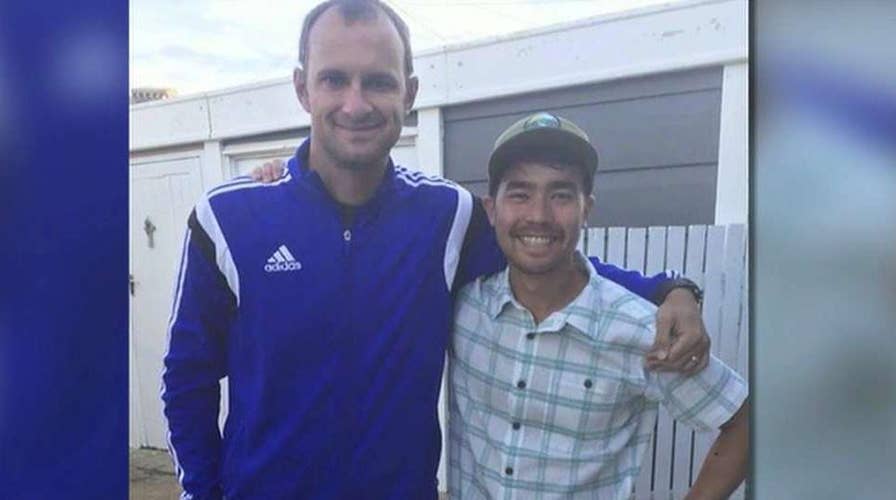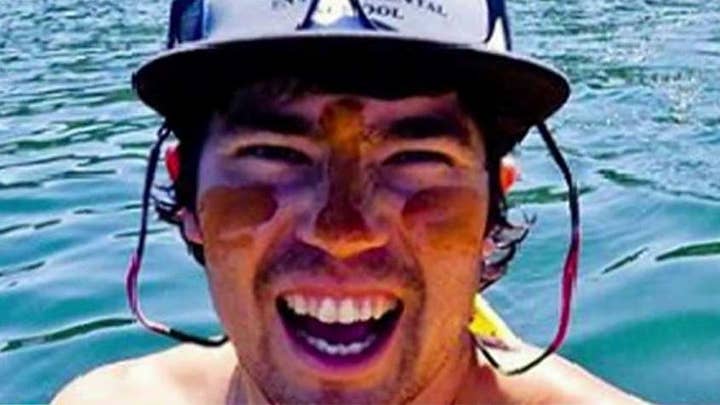Officials struggle to recover body of American missionary
John Allen Chau was killed by North Sentinel islanders who apparently shot him with arrows when he trespassed on the isolated island in the Bay of Bengal
The body of the American missionary reportedly killed on a remote Indian island earlier this month should be left on the island due to the dangers that both the tribe and Indian authorities would face in another encounter, Survival International said.
The group, which identifies itself as champions of tribal peoples around the world, told the BBC that any recovery effort would be "incredibly dangerous."
Stephen Corry, the group’s director, said, “The risk of a deadly epidemic of flu, measles or other outside disease is very real, and increases with every contact. Such efforts in similar cases in the past have ended with Sentinelese attempting to defend their island by force.”
He said John Allen Chau’s body should be left alone "as should the Sentinelese."
Chau was killed last week by North Sentinel islanders who apparently shot him with arrows and then buried his body on the beach, police say.
While visits to the island are heavily restricted, Chau paid fishermen last week to take him near North Sentinel, using a kayak to paddle to shore and bringing gifts including a football and fish.
It was "a foolish adventure," said P.C. Joshi, an anthropology professor at Delhi University who has studied the islands. "He invited that aggression."
Joshi noted that the visit not only risked Chau's life, but also the lives of islanders who have little resistance to many diseases.
"They are not immune to anything. A simple thing like flu can kill them," he said.
Chau had wanted ever since high school to go to North Sentinel to share Christianity with the indigenous people, said Mat Staver, founder and chairman of Covenant Journey, a program that takes college students on tours of Israel to affirm their Christian faith. Chau went through that program in 2015.
"He didn't go there for just adventure. I have no question it was to bring the gospel of Jesus to them," Staver said.
But even officials don't travel to North Sentinel, where people live as their ancestors did thousands of years ago, and where outsiders are seen with suspicion and attacked.
"It's a difficult proposition," said Dependera Pathak, director-general of police on India's Andaman and Nicobar Islands, where North Sentinel is located. "We have to see what is possible, taking utmost care of the sensitivity of the group and the legal requirements."
Police are consulting anthropologists, tribal welfare experts and scholars to figure out a way to recover the body, he said.
The Associated Press contributed to this report










































